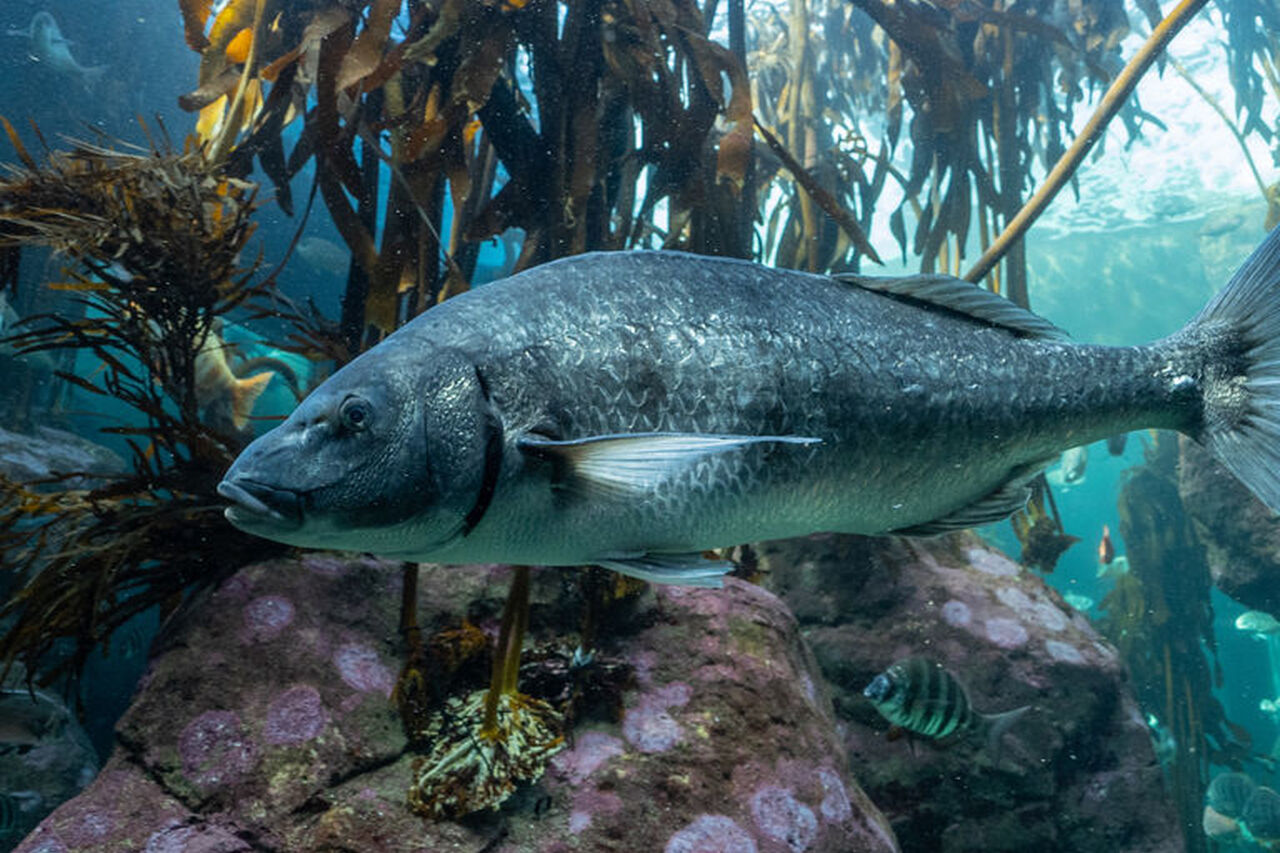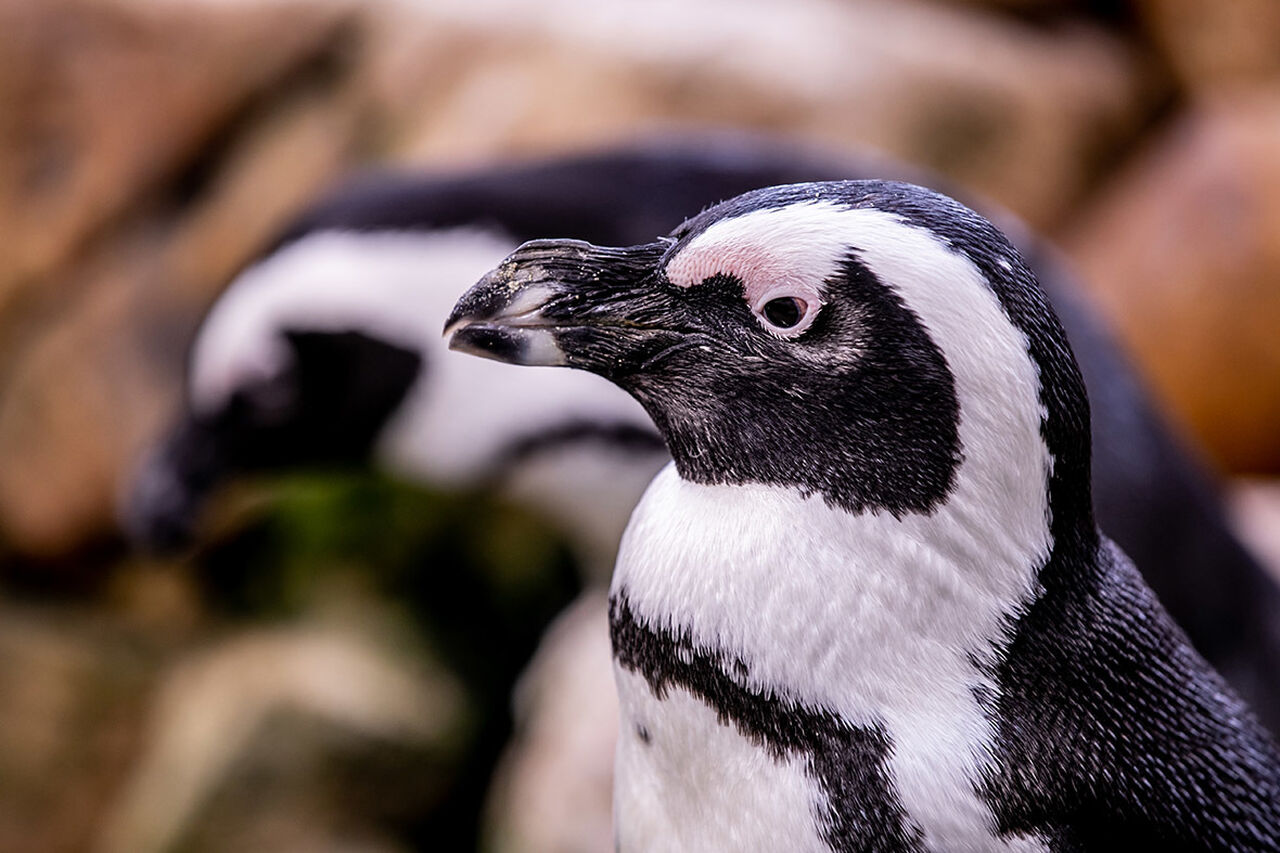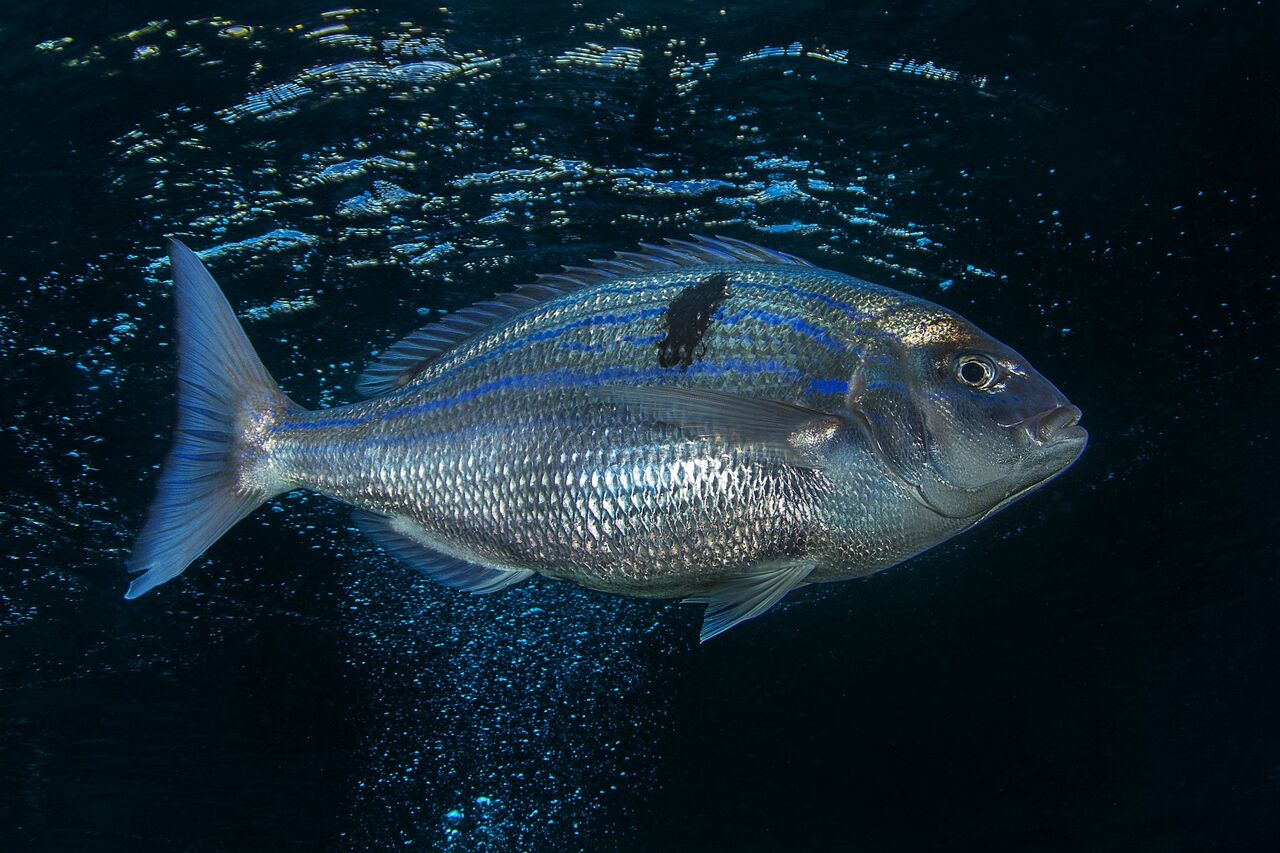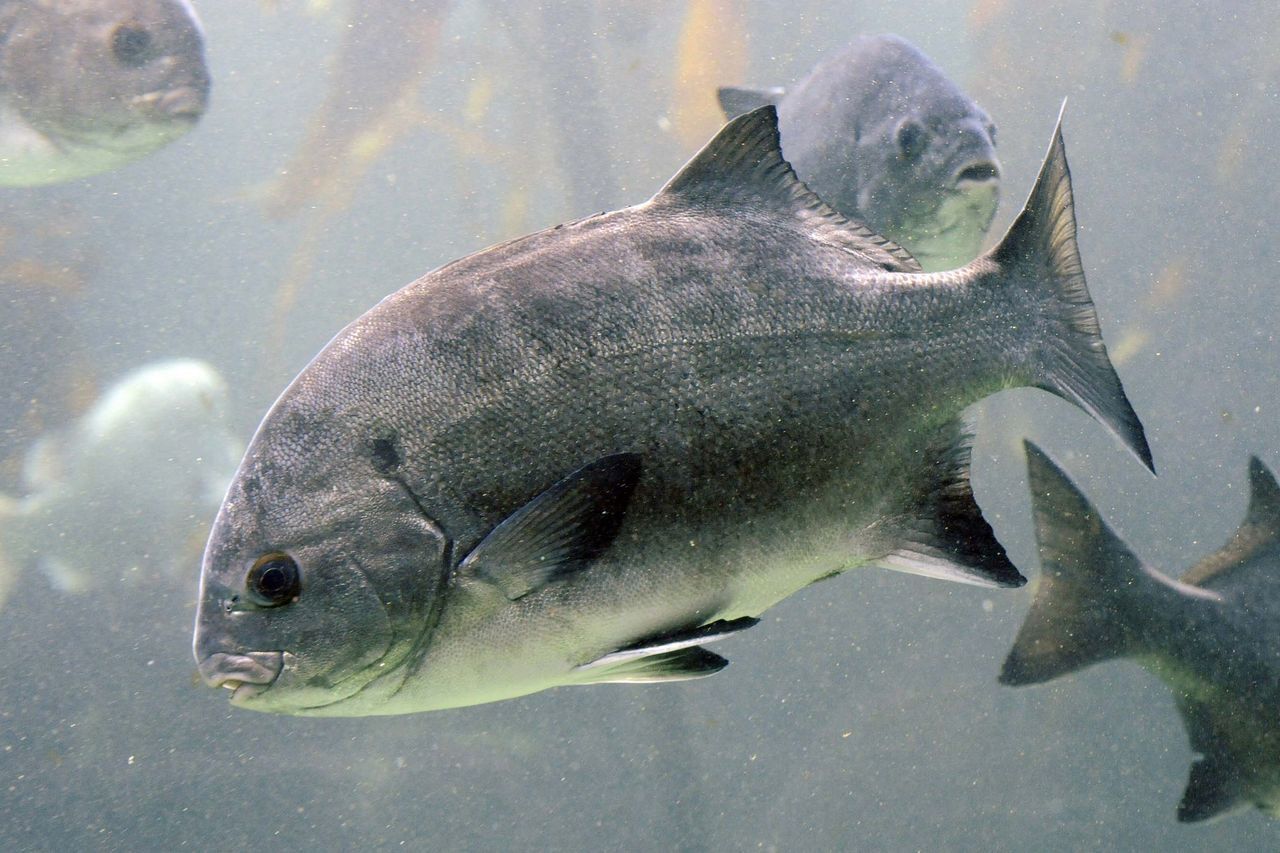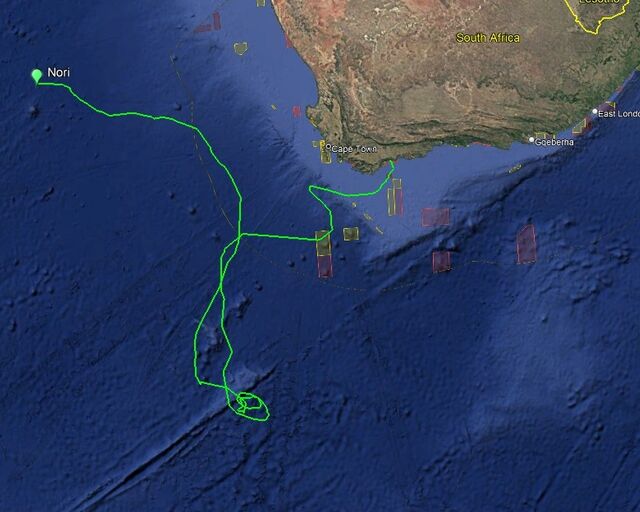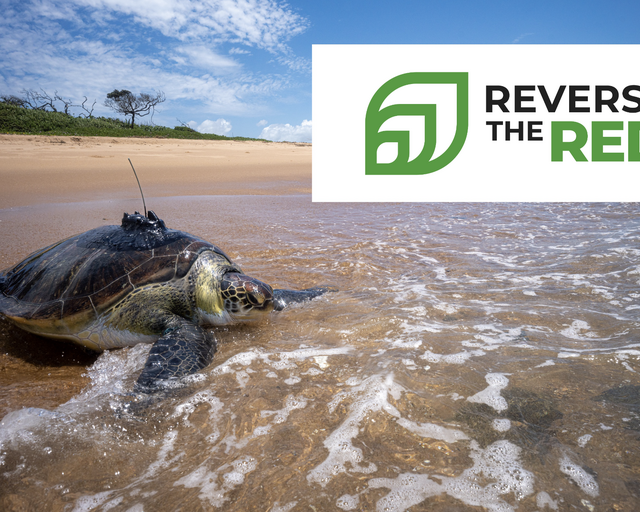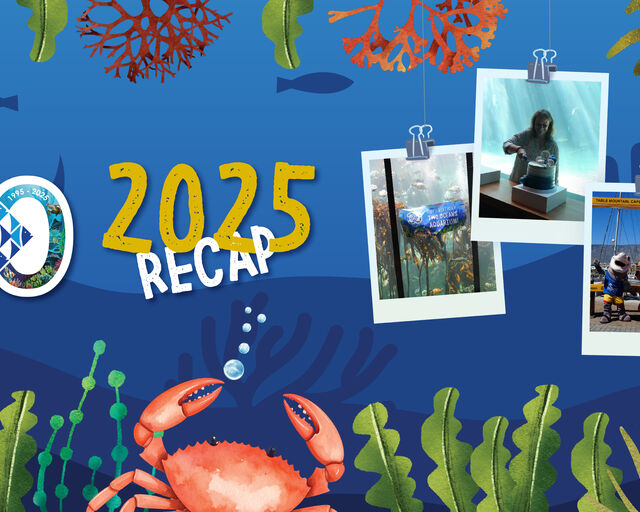Marine Protected Areas (MPAs) are crucial for the conservation of marine animals and the ecosystems they depend on in South Africa’s ocean.”. These areas allow animals to thrive, reproduce, and grow safely. Many of the beautiful species that you'll encounter on your Aquarium visit rely on MPAs in South Africa. Let's take a look at a few.
Turtles
Turtles, like our beloved flippery friends in the I&J Ocean Exhibit, and the conservation of their hatchling population played a pivotal role in the establishment of the iSimangaliso MPA in 1979. This MPA significantly contributes to the increase in the number of nesting loggerhead females and assists in protecting these animals, and female leatherback turtles, to return to these beaches annually to nest. Many of the adult turtles and hatchlings that are undergoing rehabilitation in our Turtle Conservation Centre, were rescued in MPAs.
White steenbras
The white steenbras in the Kelp Forest Exhibit naturally depend on estuaries for the protection of juvenile fish and breeding. These species have been overexploited and the establishment of MPAs like De Hoop, Dwesa-Cwebe, and Addo Elephant has been effective in conserving the species.
Kelp Forest
The Two Oceans Aquarium Kelp Forest Exhibit is home to three species of giant kelp, that help shelter the local fish as they drift among the fronds. The same happens with the kelp in the ocean - kelp forests provide homes and structures for valuable resources like west coast rock lobsters, fish, and abalone. Important kelp forest ecosystems will be included in the Robben Island MPA, Agulhas Bank Complex MPA, and Namaqua National Park MPA.
The kelp forests in our MPAs are home to the tiny puffadder shysharks, who you'll also find at the Two Oceans Aquarium. These animals roam kelp forests along the southwest coast.
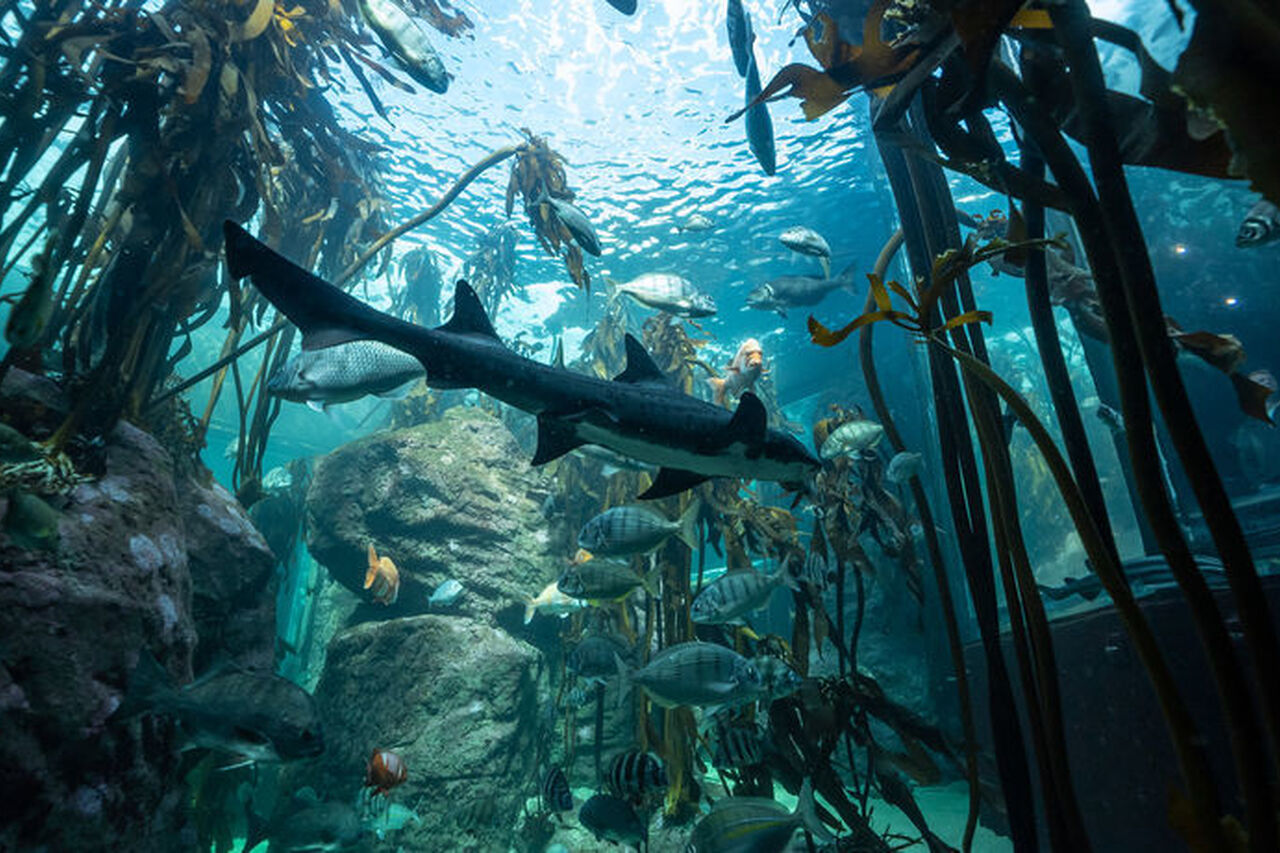
Ragged-tooth sharks
Ragged-tooth sharks, like the ones in the Save Our Seas Foundation Shark Exhibit, naturally move up and down our coastline to breed and feed. These animals require MPAs for mating and birthing, and MPAs like Algoa Bay, play a crucial role in protecting juvenile ragged-tooth sharks. In addition, pregnant females wait out their gestation period in the iSimangaliso MPA, and adult ragged-tooth sharks generally aggregate around the Aliwal Shoal MPA.
African Penguins
As you may know, the African penguin species is facing imminent extinction in the wild as a result of overfishing of their food source (anchovies and sardines), as well as oil pollution. These animals rely on areas like Stoney Point in the Betty's Bay MPA, the islands in the Addo Elephant MPA, and Boulders Bay in the Table Mountain MPA as important breeding colonies.
The ever-popular I&J Ocean Exhibit is also home to the seventy-four. This species once made up 70% of the linefish catch in KwaZulu-Natal in the early 20th century. However, the fishery for this species was shut down in 1998 as a result of them being fished to commercial extinction. The establishment of large no-take MPAs like Pondoland, Dwesa-Cwebe, and Aliwal Shoal played a crucial role in the protection of this species and its gradual recovery.
The galjoen
The national fish of South Africa, and another species of fish housed in the Two Oceans Aquarium (Kelp Forest Exhibit) - the galjoen, is another species that relies on MPAs. The animals are extremely overfished, and if not for MPAs like De Hoop, Tsitsikamma, and Table Mountain, the galjoen population would be in much worse of a state that it is now.
Join us as we celebrate MPA Day on 1 August 2023, as we strive to continue learning about the importance of conserving our oceans and consistently building support for MPAs.
Join us for a special evening visit to the Aquarium on 1 August, to celebrate Kelp Night- a one-of-a-kind night all about these special ocean ecosystems and their role in our lives, on MPA Day.
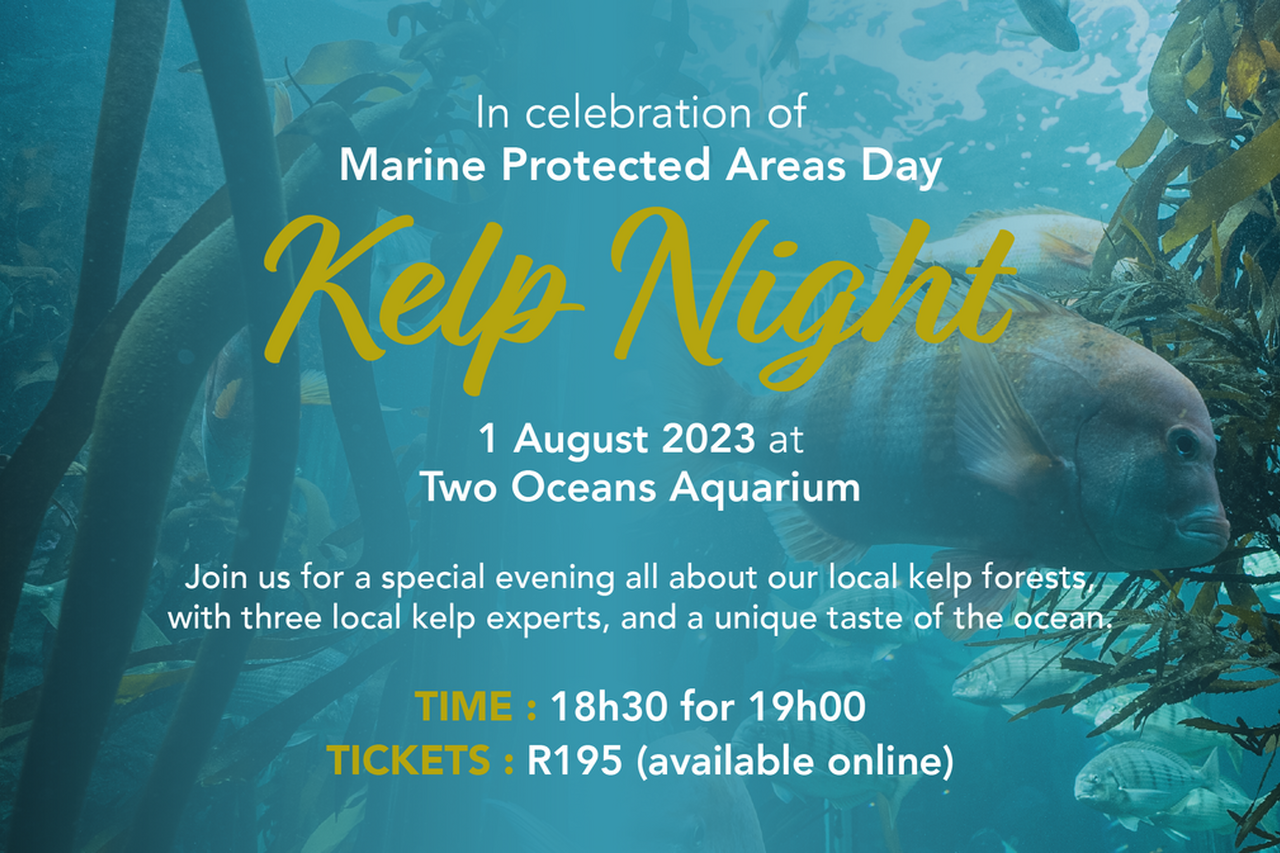
Related News
Sign up to our Newsletter
Receive monthly news, online courses and conservation programmes.
